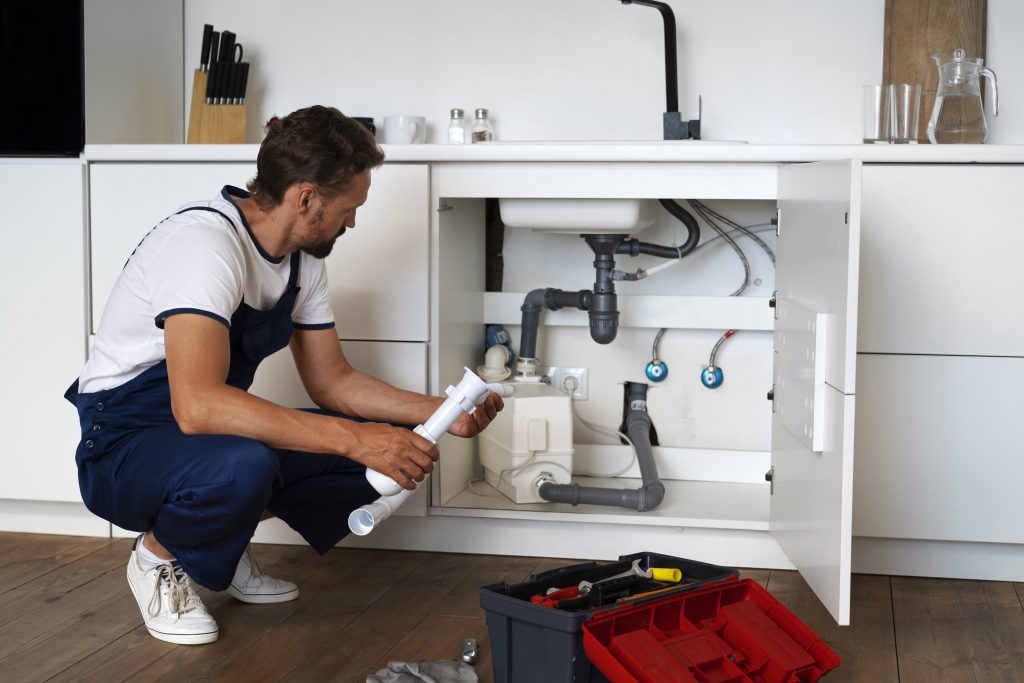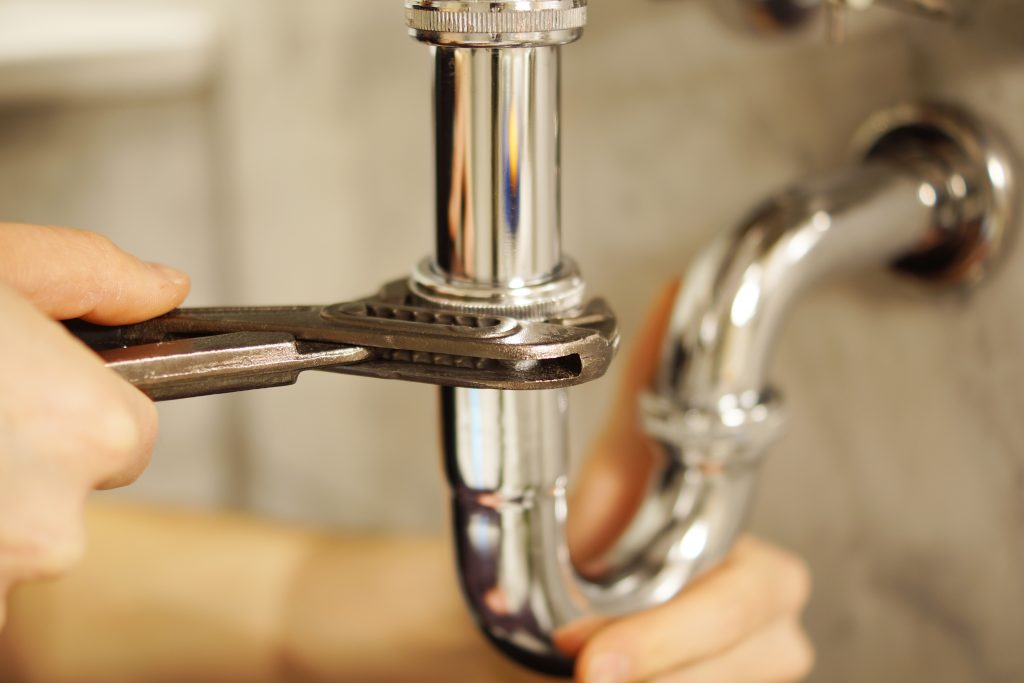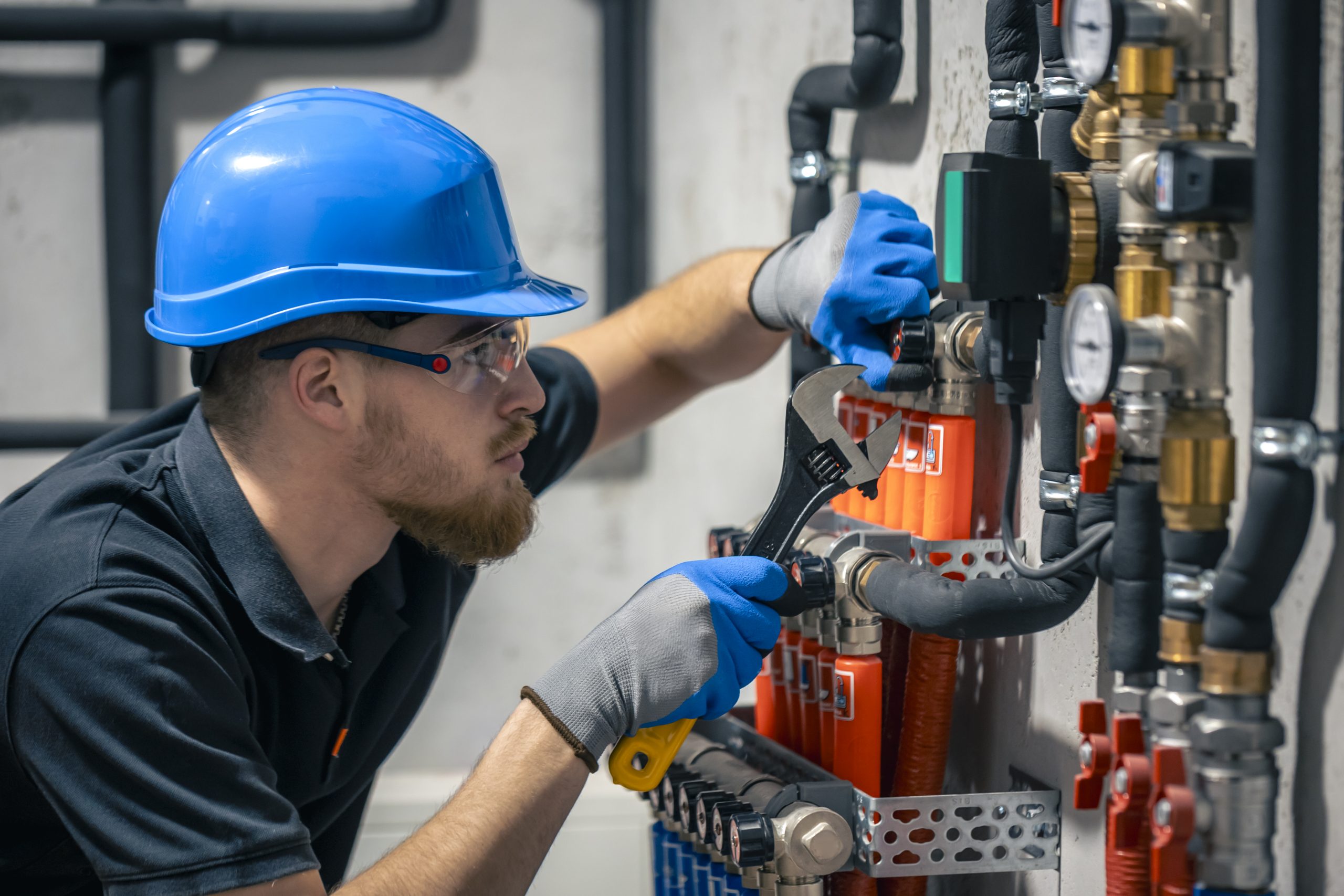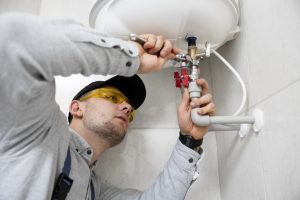Winter in the UK is known for cosy evenings, steaming cups of tea, and chilly mornings wrapped in thick jumpers.
But beneath the comfort, cold weather can quietly wreak havoc on one of your home’s most essential systems, your plumbing.
As temperatures drop, frozen pipes, leaking taps, and boiler breakdowns become all too familiar.
A small plumbing issue in summer might go unnoticed for weeks, but in winter, it can escalate into an emergency overnight.
The good news? With the right knowledge and preparation, you can prevent most winter plumbing disasters before they start.
In this guide, you’ll discover the Top 5 Winter Plumbing Emergencies homeowners face, along with expert advice on how to handle and prevent them.
Understanding Winter Plumbing Emergencies
When temperatures plummet, the water running through your pipes reacts to the cold.
It starts to freeze, expand, and put pressure on pipe walls, a recipe for leaks and bursts.
In the UK, where homes often have uninsulated lofts, garages, and outdoor pipework, the risk is even higher.
A few nights of frost can trigger multiple plumbing issues from, frozen pipes to blocked drains and malfunctioning boilers.
The key to avoiding winter plumbing emergencies lies in preparation.
Understanding how your plumbing system responds to the cold helps you spot early signs of trouble before they turn costly.
Why Plumbing Emergencies Spike During Winter
Here’s why winter hits plumbing systems harder than any other season:
- Freezing temperatures: When water turns to ice inside pipes, it expands and stresses the pipe walls.
- Thermal stress: Pipes repeatedly expand and contract as the temperature fluctuates.
- Increased demand: Your boiler and heating system work overtime.
- Cooling of fats and oils: Kitchen drains block more easily when grease solidifies.
- Outdoor exposure: External taps and pipes face direct frost, especially overnight.
Understanding these triggers helps you protect your system, and your peace of mind.
3) Frozen Pipes
Few things cause more chaos than waking up to find your taps dry.
Frozen pipes stop water flow and can cause major bursts once the ice thaws.
Why it happens:
Pipes in lofts, garages, basements, or external walls are most exposed.
When the temperature drops below freezing, standing water inside them solidifies.
As the ice expands, it exerts immense pressure on the pipe material.
Signs your pipes may be frozen:
- No or low water pressure.
- Frost or condensation on visible pipework.
- Strange gurgling sounds from taps.
What to do immediately:
- Turn off your mains stopcock.
- Open affected taps to release trapped pressure.
- Warm the pipe slowly using a hairdryer, hot water bottle, or warm towel.
- Never use a naked flame, it can cause cracks or even fires.
How to prevent frozen pipes:
- Insulate exposed pipes with lagging (foam insulation sleeves).
- Seal draughts around pipe entry points.
- Keep your heating on low (around 15°C), even at night or when away.
- Leave loft hatches open slightly to let warm air circulate.
A small investment in insulation today can save you hundreds in repairs later.
2) Burst Pipes
A burst pipe is the aftermath of freezing, and it can cause thousands of pounds’ worth of damage in hours.
Why pipes burst:
When frozen water inside expands, it builds up pressure that eventually splits the pipe.
Once the ice thaws, the water gushes out, soaking floors, walls, and ceilings.
Warning signs:
- Sudden drop in water pressure.
- Damp patches or bulges on ceilings and walls.
- Unexpected dripping or running water sounds.
What to do if a pipe bursts:
- Turn off the mains water supply immediately.
- Switch off your boiler and any electricals near the leak.
- Open all cold taps to drain water from the system.
- Collect water with buckets and towels to reduce damage.
- Call an emergency plumber straight away.
How to prevent it:
- Keep vulnerable areas (lofts, garages) warm.
- Insulate pipes properly.
- Service your plumbing annually.
- Install smart leak detection systems.
Knowing where your stopcock is, and testing it regularly, can make the difference between a small leak and a flooded home.

3) Blocked Drains and Gutters
A blocked drain is a slow-burn problem that often peaks in winter.
Cold weather causes grease and soap scum to solidify, while falling leaves and frost clog outside drains and gutters.
Typical symptoms:
- Slow drainage in sinks, baths, or showers.
- Unpleasant smells from plugholes.
- Gurgling or bubbling noises.
- Overflowing gullies outside your property.
Preventative steps:
- Never pour cooking fat or oil down your sink.
- Fit drain guards to catch food debris and hair.
- Flush your drains weekly with hot water and vinegar.
- Keep gutters and downpipes clear of leaves before frost sets in.
Blocked drains are often ignored until water starts backing up, but a small maintenance habit can save a major winter headache.
4) Boiler or Central Heating Breakdown
Boiler failures are one of the most stressful winter plumbing emergencies.
They leave homes without heat or hot water, exactly when they’re needed most.
Why boilers fail in winter:
- Frozen condensate pipes: A very common issue many homes.
- Sediment and limescale build-up: Reduces efficiency.
- Overworked systems: Old boilers can’t cope with higher seasonal demand.
- Faulty thermostats or airlocks: Interrupt heat circulation.
How to prevent a boiler breakdown:
- Get your boiler serviced every year, ideally in autumn.
- Insulate outdoor condensate pipes to prevent freezing.
- Bleed your radiators to remove trapped air.
- Keep your thermostat set consistently.
Boilers are the heart of every home, and regular care keeps them healthy.
If your boiler is noisy, inefficient, or frequently losing pressure, it’s time for a professional inspection from trusted engineers like EPG247.
5) Outdoor Tap and Garden Hose Problems
Outdoor plumbing is one of the easiest areas to overlook, and one of the first to freeze.
A garden tap left connected to a hose can trap water, which then freezes and expands back into the tap and pipework.
How to prevent outdoor plumbing issues:
- Disconnect hoses before winter begins.
- Drain and shut off external water supplies from the inside valve.
- Fit frost-proof outdoor taps or insulated covers.
- Keep the area around outside taps clear of snow and debris.
A few minutes of preparation can prevent cracked fittings and leaks that are expensive to fix.
Hidden Winter Plumbing Problems (Bonus Section)
Some winter issues hide quietly behind walls or floors.
You might not notice them until spring, when the thaw reveals damp patches or mould growth.
Common hidden problems:
- Slow leaks from minor pipe cracks.
- Condensation in cold spaces causing damp.
- Frozen waste pipes behind kitchen units.
- Reduced water pressure from partially frozen sections.
Regular mid-winter inspections, especially during long cold spells, can save you from costly surprises later.

Winter Plumbing Emergency Action Plan
If an emergency strikes, knowing what to do first can drastically reduce damage.
- Turn off your water supply at the stopcock.
- Switch off your boiler to prevent further pressure damage.
- Open taps to release trapped water and pressure.
- Contain leaks with towels or buckets.
- Call a qualified emergency plumber for help.
Always act quickly — water damage spreads faster than you think.
Preventing problems is far easier (and cheaper) than fixing them. Here’s a simple checklist to prepare your plumbing for winter:
- Inspect and lag all exposed pipes.
- Drain outdoor taps and hoses.
- Service your boiler and radiators.
- Clear gutters and drains of debris.
- Check for draughts near plumbing runs.
- Keep heating on low if you’re away.
- Know your local plumber’s contact details for emergencies.
Consistency is key, a few minutes of regular maintenance each week keeps your system healthy.
Common Myths About Winter Plumbing
Myth 1: “Running water can’t freeze.”
→ False. It helps delay freezing but doesn’t eliminate risk.
Myth 2: “Only outdoor pipes freeze.”
→ Pipes in unheated rooms or lofts are just as vulnerable.
Myth 3: “Boilers don’t need winter servicing.”
→ Regular maintenance is essential to prevent breakdowns.
Myth 4: “Small leaks are harmless.”
→ Minor drips can cause mould, rot, and corrosion over time.
When to Call a Professional
DIY methods can handle minor blockages or basic insulation.
But if you have no heating, frozen pipes, or visible leaks — it’s time to call a professional.
Plumbing experts like EPG247 use modern diagnostic tools, thermal imaging, and pressure testing to detect problems early and carry out safe, lasting repairs.
They can also provide annual winter checks to keep your home’s plumbing efficient, reliable, and ready for any cold snap.
Conclusion
Plumbing emergencies can turn a cosy winter into a stressful experience — but most are preventable with early preparation.
By understanding how cold weather affects your home’s pipes, drains, and boiler, you can stop small issues from becoming major crises.
Check your insulation, service your boiler, and inspect your outdoor plumbing before frost hits.
And if you ever face an unexpected plumbing issue, the experts at EPG247 are always ready to help — keeping homes warm, dry, and worry-free all winter long.
Frequently Asked Question
How can I tell if my pipes are frozen?
If you turn on your tap and nothing (or very little) comes out, or you hear gurgling noises, it’s likely frozen. Look for frost on exposed pipes.
Can I use boiling water to thaw frozen pipes?
No. Sudden temperature changes can crack pipes. Use warm air or towels instead.
What temperature do pipes freeze?
Water begins freezing at 0°C, but most plumbing issues start when the temperature drops below -3°C for several hours.
Should I keep heating on all day to prevent freezing?
Not necessarily. Set your thermostat to around 15°C continuously, especially if you’re away or it’s extremely cold.
Why does my boiler stop working in cold weather?
The condensate pipe might have frozen. It usually runs outside and can block, causing the boiler to shut down.
Is home insurance valid for burst pipes?
Most home insurance policies cover burst pipes, but they may not cover damage if proper maintenance wasn’t carried out.
How often should I service my boiler?
At least once a year, ideally before winter starts.









